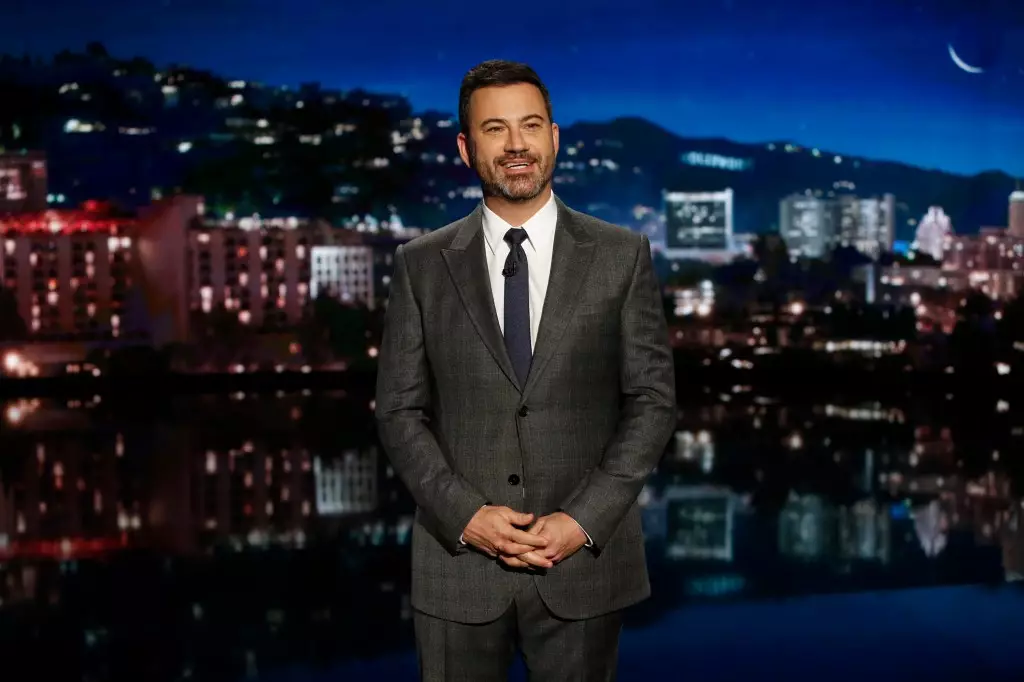In an era where the boundaries of free speech are constantly tested and redefined, Disney’s aggressive decision to indefinitely suspend Jimmy Kimmel Live! marks a seismic shift in the landscape of American broadcast television. This move is not merely a cancellation; it’s a profound statement—one that underscores an increasingly complex and fraught relationship between corporate interests, political influence, and the right to open dialogue. While the immediate reasoning seems rooted in Kimmel’s recent comments about a high-profile and emotionally charged incident, the implications stretch far beyond a single late-night host. This silence, enacted without warning, sends ripples through the fabric of the legacy media establishment, raising questions about the future of accountability and free expression in televised discourse.
The Courage—or Fear? Analyzing the Fallout
Kimmel’s comments, seemingly nuanced at worst, dragged him into the crosshairs of powerful political and regulatory entities. His critique of efforts by certain political factions to distort or dismiss facts surrounding a tragic shooting incident was, in essence, a defense of truth and responsible journalism. Yet, from the perspective of Disney and FCC authorities, it may have been perceived as a threat—a challenge to their control over the narrative. The response from FCC Chairman Brendan Carr, describing Kimmel’s conduct as “sick,” signals a troubling willingness among regulators to police speech that veers into political territory, especially when that speech challenges popular narratives or authorities. Thus, the suspension could be less about the content itself and more about an ideological shift that favors silence over debate—a move that risks turning late-night television into a monologue of state-approved perspectives rather than a forum for controversy.
The Political Underbelly: A Broader Context of Corporate Caves?
Disney’s decision must be understood within the broader framework of its recent political entanglements. The company’s settlement with Donald Trump, which included a hefty donation and legal compromises, highlights a pattern of capitulation rather than confrontation. When a corporation, traditionally seen as a bastion of free expression, makes a move to suppress a host for voicing a controversial opinion, it suggests a strategic recalibration—one influenced less by principle and more by public relations and looming regulatory threats. Such a stance erodes the very foundations of free speech, replacing nuanced discourse with sanitized, controlled narratives aimed at placating powerful political actors. If corporate interests continue to wield such influence, the traditional role of late-night comedy as a check on political power may be irreparably compromised.
The Personal Toll and Future Uncertainties for Kimmel
Jimmy Kimmel, a longtime fixture in late-night TV and a vocal advocate for free expression, now finds himself at a pivotal crossroads. The indefinite suspension not only halts his show but could also signal a larger retreat in his career ambitions—perhaps even nudging him towards reconsidering his role as a public commentator. His current contract running until 2026 remains unrenewed or unsettled, and the absence of a clear path forward fuels speculation—will he return? Or has this episode shattered his confidence in the current media ecosystem? Kimmel’s influence, built on razor-sharp wit and outspoken views, now confronts a climate where dissent is swiftly silenced. This could serve as a chilling warning to other broadcasters and hosts: speak truth at your own peril.
Where Do We Go From Here? The Silent Future of Free Speech
The suspension of Kimmel’s show isn’t just a singular event; it’s emblematic of a larger culture shift. As corporate interests calibrate their tolerance for dissent, the space for open, honest debate within mainstream media narrows. Whether this is a sign of emerging authoritarian tendencies or a reflection of crises in trust and capitalism, it undeniably signals a future where voices like Kimmel’s could be marginalized or eradicated altogether. For viewers, journalists, and commentators alike, there is a pressing need to scrutinize whether the principles of free speech are being upheld or eroded by the very institutions entrusted with safeguarding democratic dialogue. This silence isn’t just about Kimmel—it’s about the future of American discourse itself.

